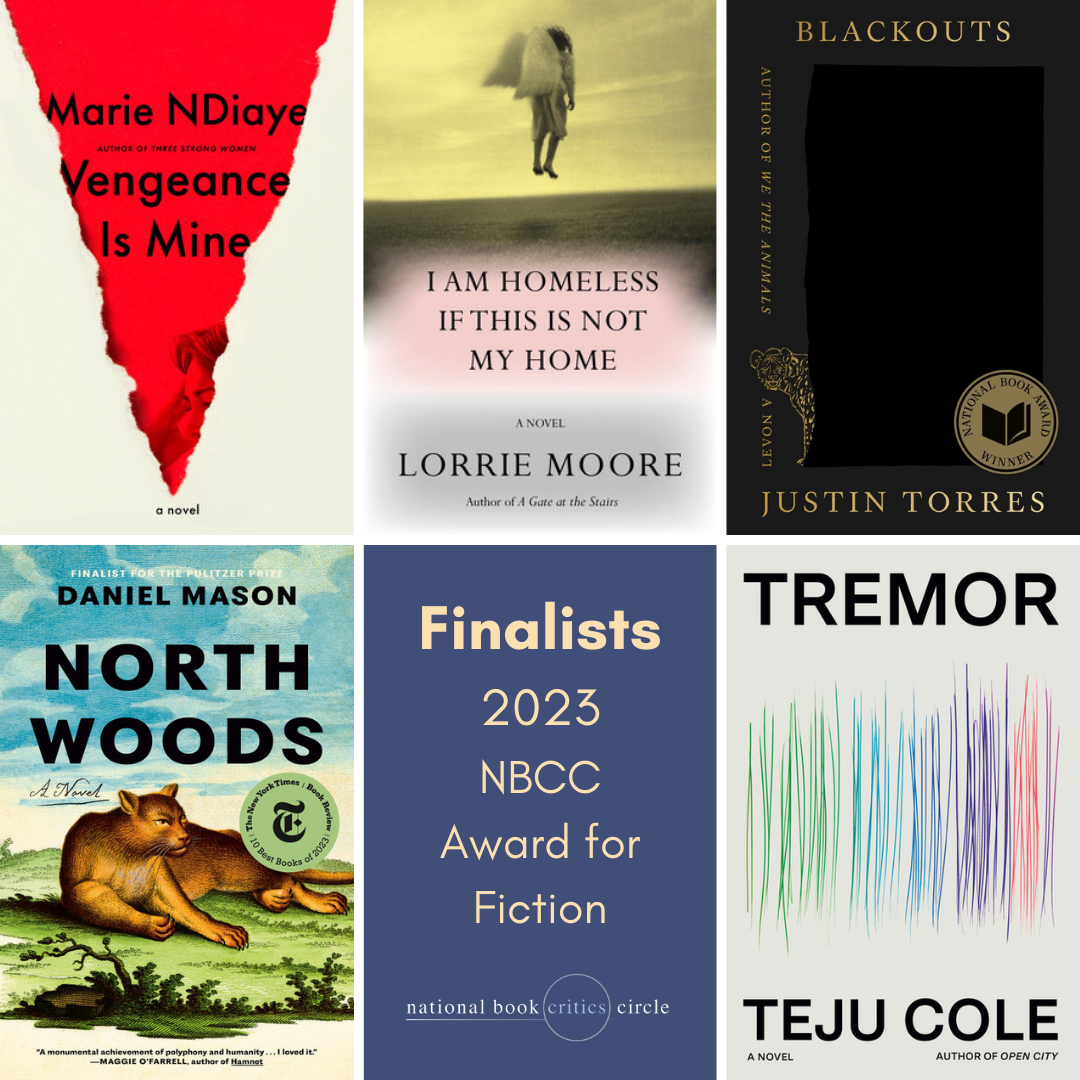Each year, our board members write citations of the finalists for the National Book Critics Circle Awards in a feature we call 30 Books in 30 Days. We’re honored to continue this year’s edition with brief reflections on the finalists in our fiction category.
Teju Cole, Tremor (Random House)
In Cole’s triumphant return to fiction, the critic, novelist, and photographer finds new possibilities for autofiction. The book is dense with digressions on art and colonialism from Tunde, the Harvard-photography-professor narrator (one chapter takes the form of a lecture implicating an audience of museum patrons in the legacy of cultural appropriation). But it’s more than a vehicle for ideas. Rather, the story is about what these ideas mean for Tunde as he considers his own degrees of privilege and the exploitative nature of photography while reckoning with memories of growing up in Nigeria and of an old friend whose occasional presence adds to Tremor’s elegiac and haunting quality.
Daniel Mason, North Woods (Random House)
A house surrounded by an apple orchard in Western Massachusetts provides the setting for Daniel Mason’s ghostly masterpiece. Told in vivid overlapping stories, spanning from the Puritan colonial era to the future, the novel lays bare the poisonous American obsession with property and its deleterious effect on ecological succession. Beauty, humor, and violence surface in the lives of the house’s colorful inhabitants over the years: spinster sisters, ambitious farmers, a painter harboring a secret desire, and a troubled young man, among others. The bold accordion-like structure of North Woods (letters, songs, and poetry are mixed with conventional narration) traces an erosion of humanity even as its players yearn for a better future.
Lorrie Moore, I Am Homeless if This Is Not My Home (Knopf)
Lorrie Moore’s I Am Homeless If This Is Not My Home is hilarious and beautifully written, which is no surprise coming from Moore, whose short stories and novels have delighted readers since 1985’s Self-Help. The surprise is in the absolute boldness of this novel—a zombie road trip is interspersed with letters from an innkeeper written just after the Civil War. Even more astounding is the beating heart of the work—amid the chaos and contortion of the plot, this is a tender and poignant examination of grief, loss, and memory. It’s a wonderfully elusive book from a master of form, packing multitudes into just under 200 pages.
Marie NDiaye, translated by Jordan Stump, Vengeance Is Mine (Knopf)
At the heart of Marie NDiaye’s hypnotic and ingenious literary thriller is a sensational legal case: Maître Susane is hired to represent a wealthy man’s wife, who has been accused of murdering the couple’s three children. Susane, who has never tried a murder case and is of a working-class background, believes she met Principaux, her client’s husband, decades earlier when she was ten years old. NDiaye, who began publishing her slippery and original fictions three decades ago at 17, entwines subtle mysteries with depictions of harrowing violence. Elliptical and lyrical, Vengeance Is Mine amounts to a disquieting exhumation of the past and its tight, invisible hold on the present.
Justin Torres, Blackouts (Farrar, Straus and Giroux)
Justin Torres radically experiments with the biographical fiction genre to stunning effect. Structured like an exquisite nesting doll of stories, the novel follows the arrival of the young exhausted narrator at the Palace, a convalescent home where he has come to help Juan finish his erasure project involving Sex Variants, a real-life 1941 collection of anonymous interviews with gay and lesbian people. Contributions by queer journalist Jan Gay were uncredited, and Juan and the narrator work together to highlight this unjustly forgotten legacy, as Juan prods the narrator for details of his own clouded past. Blackouts is a tour de force of desire and reclamation.


